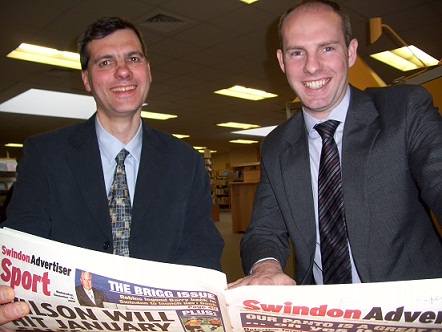
It is every parent’s worst nightmare. The blue lights at the window and the policeman on the doorstep, bearing the life-changing news that your child has been killed or seriously injured in a car accident.
Sadly, this is the reality for four families every day in Britain and recently for families here in Swindon too. Our statistics on young driver deaths are some of the highest in the developed world. Young drivers account for just one in ten of licence holders, but one in four of road fatalities. We need bold reform to bring these figures down.
That is what I set out to do with my Private Member’s Bill, due for debate today. Most of the time, Parliament considers Government legislation. A very small amount of time is set aside for ‘Private Business’ or the Bills brought forward by backbench MPs like me.
It is rare for these Bills to become law but it is an excellent opportunity for MPs to raise issues and prompt the Government to give them consideration. As the Government is shortly due to publish a consultation document on young drivers, now is the perfect time to present how I think we can better balance safety with the freedom a car brings.
A graduated driving licence seemed the obvious route to go down. Other nations who have implemented such schemes have seen up to a 60% reduction in young driver road deaths.
Once you pass your test, rather than receive a full licence, you would receive a ‘graduate’ licence for 12 months. During this time, you would be subject to a zero drink-drive limit and a one passenger limit. Why? Because the main aggravating factors that increase risk for young drivers include passengers and alcohol. Experience can compensate for the one drink you have or chatting with someone in the back seats. Young drivers do not have this.
Before the test, rather than take a few lessons and book the test on a wing and a prayer, my Bill means that you would have to have certain competencies signed off by an instructor before you would be allowed to book the test. So too would you have to complete competencies in motorway and night driving during the 12 month graduate period.
Not only would my reforms reduce risk, with this they would reduce insurance premiums also by around 20%. I am keen to see ‘black box’ technology more widely used to reduce premiums yet further for sensible drivers.
Since my Bill was first introduced to Parliament, 512 families have received that knock on the door. Whilst my Bill is unlikely to become law, if it does even a little to bring us closer to much needed reform, it will have done its job.

